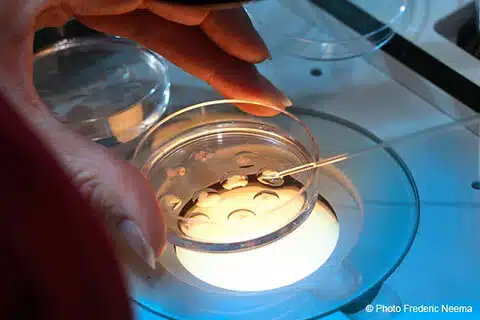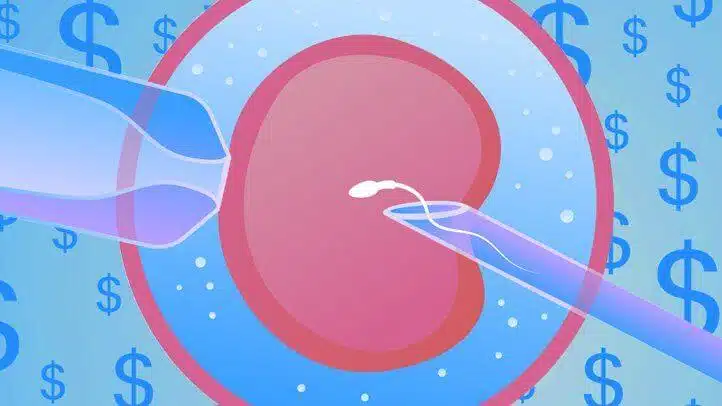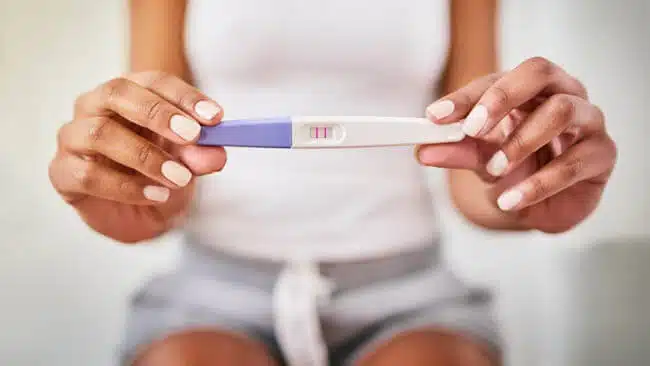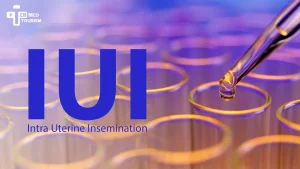People on TikTok swear that pineapple juice act as a marvel, from reducing the post-surgery swells to helping implantation after IVF, but what’s the truth and what’s the gossip?! Practically, patients have giant question marks!
- How to increase your chances of IVF success?
- What to do the night before egg retrieval?
- What to eat during IVF?
- What to avoid during IVF?
- Which food helps implantation? and etc.
In this article of TebMedTourism, there is a comprehensive answer to all questions that may occupy your mind as a couple has been involved in an IVF procedure to welcome their new babe. You have entered a challenging, pricy and time-consuming journey, so you should set your goal to be one of our successful IVF experiences on the IVF first-time success stories page. Read this post to the end to get to know all considerations to increase your chances of IVF success surprisingly and fulfil your dream of becoming a parenthood via a healthy pregnancy and successful IVF journey!
How can I increase my IVF success rate?
This is the most crucial question for a curious mind looking for the most appropriate answers to increase the chances of IVF success, but your knowledge about the IVF process will help you choose the best IVF food and IVF diet exceptional for each stage of IVF. By doing so, you will actively engage in the entire IVF procedure and create a positive self-image, increasing your chances of IVF success.

How can I increase my IVF success rate?
This relatively typical question has an apparent solution. IVF pays particular regard to the intended mother’s wish to welcome their new kid through IVF therapy, and they should focus on them, much like other medical treatments and techniques of reproduction. The following are the parents’ top priorities to increase their chances of IVF success: • Be sure to keep a healthy weight. • Improve the health of sperm. • Boost blood circulation (For the health of the eggs, oxygen-rich blood flow to the ovaries is necessary). • Become less stressed. • Give up smoking. • Consider using vitamins. • Make sure your vitamin D levels are acceptable. After each stage of the IVF process, some other dos and don’ts may increase your chances of success. Read the earlier paragraphs of this TebMedTourism post carefully for further information about the IVF foods used in the two most crucial IVF steps, “egg retrieval” and “embryo transfer.”
What age is IVF most successful?
It is well-known that a woman reaches her peak fertility in her 20s. According to studies, women in their 20s and 30s had the greatest success rates with IVF and other reproductive technologies; on average, assisted reproductive technology (ART) cycles, similar IVF process, that result in a live delivery have the following percentages:
- 31% of women under 35
- 24% of women in the 35–37 age group
- 16% of females aged 38 to 40
In women aged 41 to 44, 8% and 3% of women over 43 years old. Numerous factors, including age, influence IVF success rates and overall fertility, but since a woman’s egg supply declines with age, consequently, her eggs are not as healthy as they were when she was younger. Genetic problems like Down syndrome and the likelihood of miscarriage will rise with age, so many countries have IVF age limitations.
How can I increase my chances of IVF working?
Take these steps to increase your chances of IVF success:
- Manage your stress
It might be stressful to go through an IVF cycle since you have definitely heard from your friend and the media that the IVF process is pricy and time-consuming. On the other hand, when you start your IVF journey, stress levels are elevated due to planning and taking medications and injections, So the first and most important thing that the intended parents should focus on it is calmness and patients to reach the best result that it means the success of the first cycle of IVF!
- Keep your blood sugar in normal levels
Fertility problems are frequently caused by abnormal blood sugar levels. The levels of blood sugar that are too high or, on the contrary, too low will mess with hormones, stop eggs from maturing, and prevent an embryo from being successfully implanted.
- Don’t forget to get enough sleep
Fertility is greatly impacted by sleep. During an IVF cycle, each night, getting 8 hours of sleep is critical to maintaining a hormone balance. Hormone balance is vital in successful fertility and fertility treatment like IVF treatment. For more information about “How to increase your chances of IVF success?” read the other paragraphs of this post on TebMedTourism. You can be sure this data will be so helpful for you, and your IVF journey will be on IVF first time success stories page by observing all the mentioned cases in this article.
IVF success tips diet
All do and don’ts should be considered in each step of IVF treatment to increase your chances of IVF success is here. We definitely recommend you read the rest of the article.
How can I increase my chances of successful ovulation induction?
By increasing the number of eggs released each month, ovulation induction is a medical procedure that can help ovulation patterns. Injectable medicines, such as clomiphene citrate, as well as oral medicines, may be used as treatments. Following considerations to increase your chances of IVF success is so necessary:
- Set the alarm for your shot time
to increase your chances of IVF success; regularity is very important; It is crucial that you take all of your injections on the recommended days and at the scheduled times. It’s “shot time,” therefore many people have found it useful to set the alarm on their watch or mobile phone as a reminder.
- ICE PACK USE
Some patients find the shots to be pretty unpleasant, while others handle them with few issues. If you are one of the patients that do not have a good tolerance for pain, applying a cold pack to your stomach before giving subcutaneous (sub-Q) shots can be beneficial, with the exception of the Progesterone shots (like Lupron, FSH such as Follistim or Gonal-F). When applying ice for five to seven minutes right before administering the shots, patients have found it to be beneficial and have reported little to no discomfort. After the injections (shots) and treatments of this stage, you may experience the following side effects:
- mood swings, anxiety, and depression, among other changes in mood
- nausea, vomiting, headaches, cramps, and breast tenderness are brief physical side effects
This stage should be completed as calmly and patiently as possible. Give up drinking and smoking, and if something unforeseen occurs, call your reproductive specialist. Don’t worry; everything is under control at this point.
Egg retrieval tips
To increase your chances of IVF success there are some practical tips that exceedingly will increase you’re your chances of IVF success. Sometimes you will feel do and don’ts are annoying and unpleasant, but the positive outcome and the success of the first cycle of IVF is our final goal.
What should I eat before and after egg retrieval?
The egg retrieval step is essential, so you should keep all the following points carefully in your mind to increase your chances of IVF success: Before egg retrieval Before the egg retrieval procedure, you should avoid red meat, fast foods, sugary foods, and caffeine and sodium-heavy foods. This way, you can increase your chances of IVF success without complications. After egg retrieval
- The most crucial thing after egg retrieval that you can do for your body after egg retrieval is to eat antioxidant foods!
It has been demonstrated that eating foods high in antioxidants can assist your body in getting rid of free radicals, which can create inflammation and damage your fertility. Focus on including various fruits and vegetables in your diet because each hue of produce has a unique antioxidant that can reduce your inflammatory response because your body will already be under medications, injections and hormonotherapy. The top three suggestions for foods strong in antioxidants to include after retrieval are here:
- Berries (strawberries, blueberries, blackberries, raspberries)
- Peppers, bell (orange, yellow, red, green)
- Brussels sprouts and broccoli (all colors)
- Take the fibresas your fuel.
You should pay close attention to your fibre intake if constipation has ever interfered with your fertility journey due to the drugs you’ve used. The recommended range for the best outcome is 25 to 37 grams per day. The top three suggestions for high-fibre foods after egg retrieval include:
- Brown beans (1 pound of dried beans is equal to 3 cups of dried beans and equal to 6 – 7 cups of cooked beans)
- Artichokes (women should consume between 21 and 25 grams)
- Pears (an excellent source of the polyphenol antioxidants that will destroy free radicals before they can cause oxidative stress and cell damage)
- Electrolyte balanceis the third important thing that you should focus on it; You could have dizziness, cramping, and irregular pulse if the amount of electrolytes in your body is very high or excessively low. Additionally, it may influence the functions of your body, such as blood clotting, muscle contraction, acidity regulation, and fluid balance. So our suggestion is to utilize these three options to stay hydrated:
- Fruit and vegetable-infused water, such as cucumber
- Coconut liquid
- Electrolyte drinks
Embryo transfer tips
Fertility specialists typically advise eating warmer meals that are rich in omega-3 fatty acids before embryo transfer as follows:
- Hot soups
- Quinoa and whole-wheat pasta are examples of whole grains.
- Beans, lentils, and chickpeas are examples of legumes.
- Wholesome fats from nuts, seeds, extra-virgin olive oil, avocado oil, and walnuts
- Lean meats like chicken and salmon (look for low-mercury fish)
- Fresh vegetables and fruits (Berries, Pineapple)
- Lemon-flavored water
Foods to eat after embryo transfer
You should follow the following diet for successful implantation after an embryo transfer to increase your chances of IVF success:
- Remember fresh and healthy food.
Opt for healthy food rather than sticking with packaged or processed foods. You may feel healthy and energetic from the inside out by eating nutritious and fresh food.
- Have folic acid-rich foods.
During pregnancy, folic acid’s importance cannot be overlooked. Folic acid is also necessary to ensure that the embryo does not suffer any developmental issues. Folic acid can be found in various food products (foods rich in folate), including Peas, spinach and kale, tofu, kiwi, poultry products, and broccoli.
- Focus on high-zinc foods.
You should include foods with 15 mg of zinc. Additionally, you might take zinc supplements in addition to foods like cereals, nuts, potatoes, and grains.
- Don’t neglect carbohydrates!
Carbohydrates are listed as the next item. You should optimally add foods with the right amount of carbohydrates. IVF requires a lot of energy, so you should eat many fruits and whole grains.
- Avocado should be your close friend!
According to the research, it is thought to be much healthier for expectant mothers. Additionally, experts advise eating avocados while doing IVF. Consuming avocados throughout pregnancy will improve your health without a doubt.

Ways to increase the success rate of IVF


















